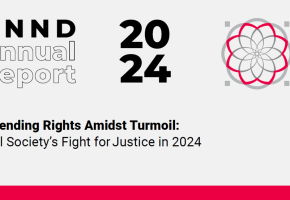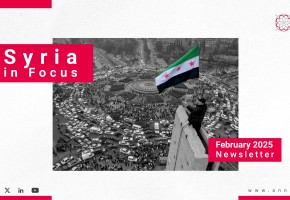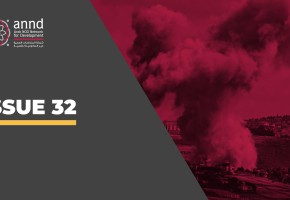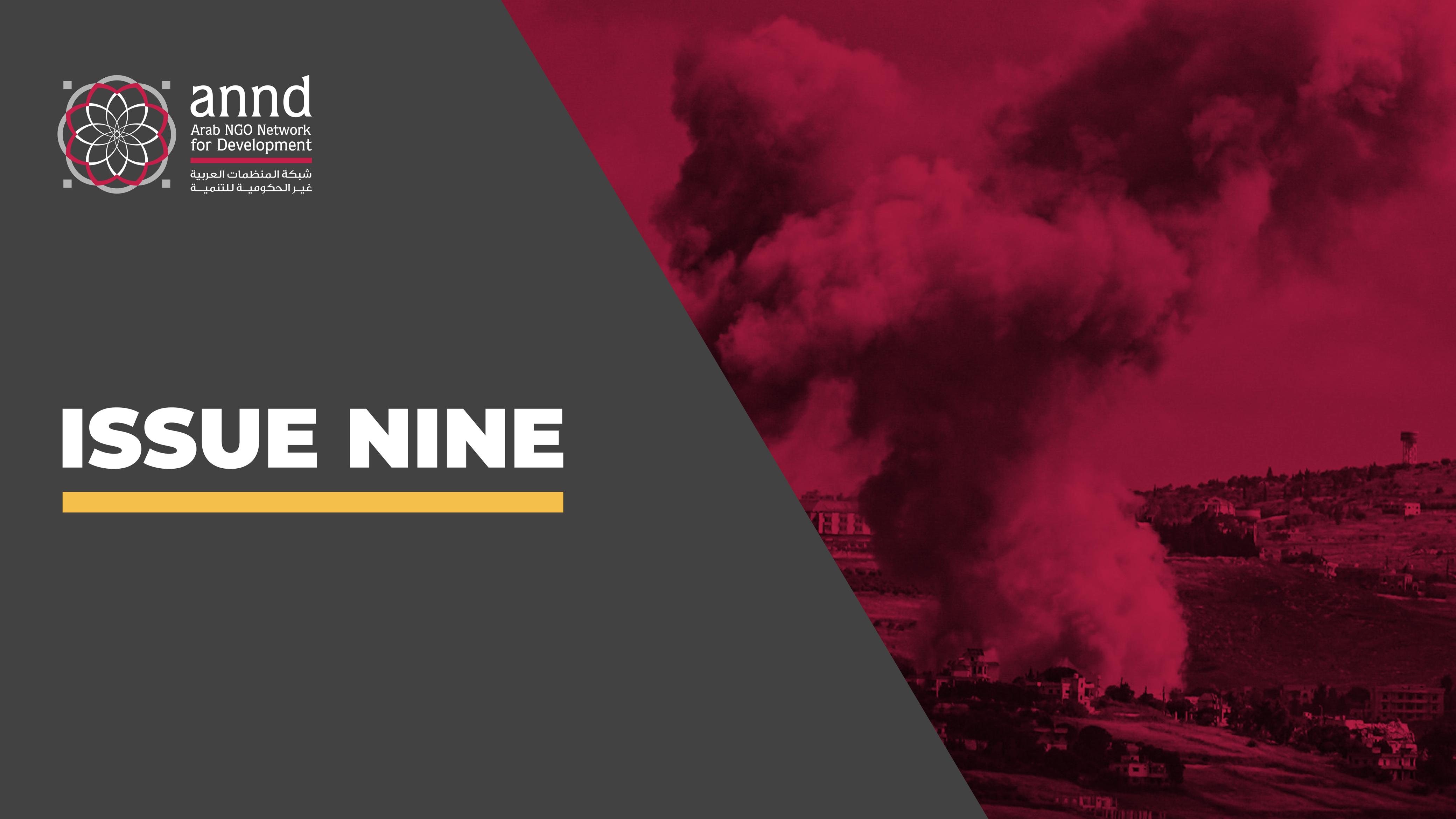
A Region on Fire
Issue Nine - October 5, 2024
There is no deterrent for Israel, and no limits to its crimes.
Gaza and Lebanon in flames
Israeli bombing from air, land, and sea continues in the Gaza Strip, leaving more civilian casualties, displacements, and destruction of civilian infrastructure. Ground operations are ongoing, especially in Beit Hanoun, west of Beit Lahia in northern Gaza, southern Gaza City, east of the Al-Bureij and Al-Maghazi refugee camps in Deir Al-Balah, southeast of Khan Younis, and east and south of Rafah.
In Lebanon, the southern suburbs of Beirut were targeted by more than thirty airstrikes on Saturday night in the most intense attack since the war began. At the same time, attempts to advance in the southern border villages continue, along with airstrikes on southern villages and the Bekaa Valley.
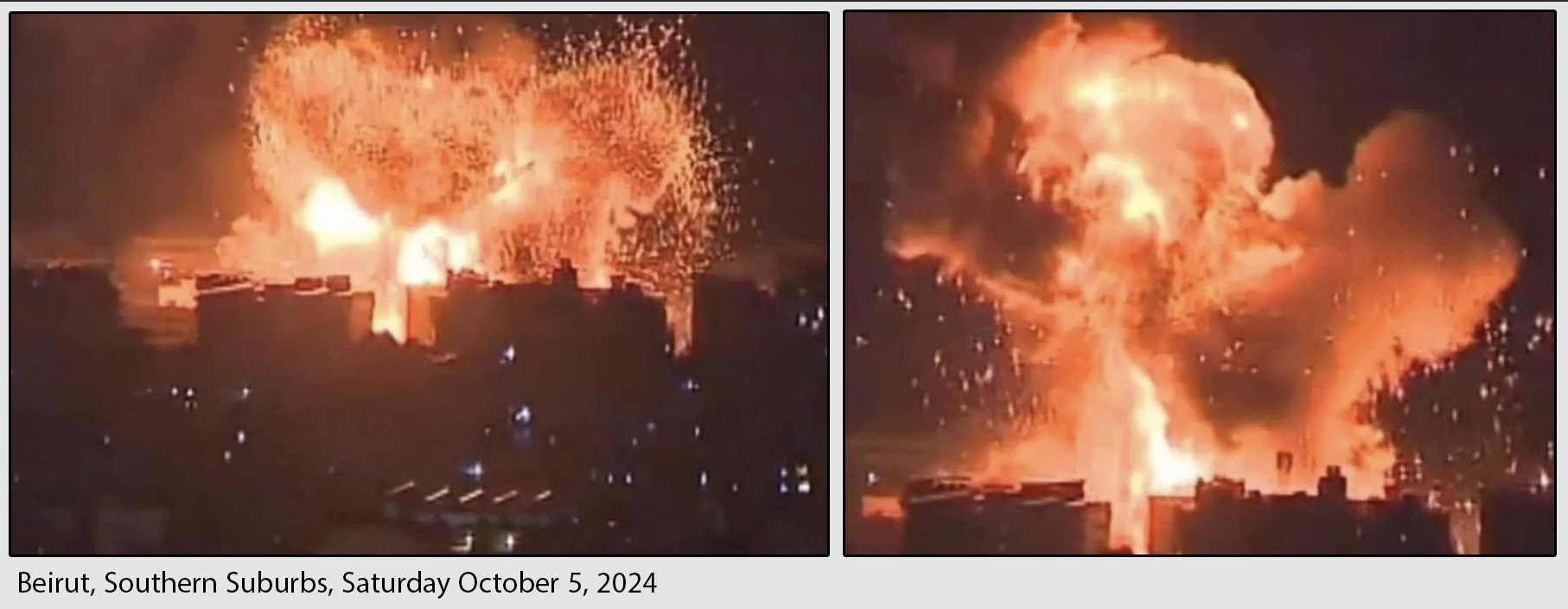
The decline in diplomatic and negotiation efforts in both Gaza and Lebanon is concerning, especially after the visit of the Iranian Foreign Minister to Beirut. Have the doors to negotiations and a ceasefire been closed in both Gaza and Lebanon? Is Israel solely pursuing a policy of destruction, killing, and displacement without any real political objectives?
Israeli threats against Iran have intensified, and it is expected that actions will be taken in the coming hours. While U.S. presidential candidate Donald Trump has urged Netanyahu to strike Iran's nuclear reactor, President Biden has advised avoiding nuclear and oil targets. Most European countries have called for de-escalation.
The international community seems unable or unwilling to stop in the Israeli government, which continues to issue hostile statements and threats against any international stance that opposes its actions or seeks to slow its aggression. After declaring that UN Secretary-General António Guterres is persona non grata in Israel, Israel has adopted a hostile tone towards the French President for suggesting arms embargo against Israel as a means of pressuring it to limit its military actions. Meanwhile, the U.S. stance remains largely unchanged, offering no real deterrent to Israel, despite repeated claims of working to stop the fighting without any tangible measures in that direction.
Battlefield developments
Israeli airstrikes continue across Lebanon, including southern and northern Mount Lebanon governorates, and two days ago, northern Lebanon, including the Baddawi camp near Tripoli, was targeted. The Secretariat of the Higher Defense Council's Disaster Risk Management Unit reported that in the past 24 hours, 106 airstrikes targeted various areas of Lebanon, mostly in the south, Beirut’s southern suburbs, and the Bekaa, bringing the total number of Israeli attacks since the start of the aggression to 9,073.
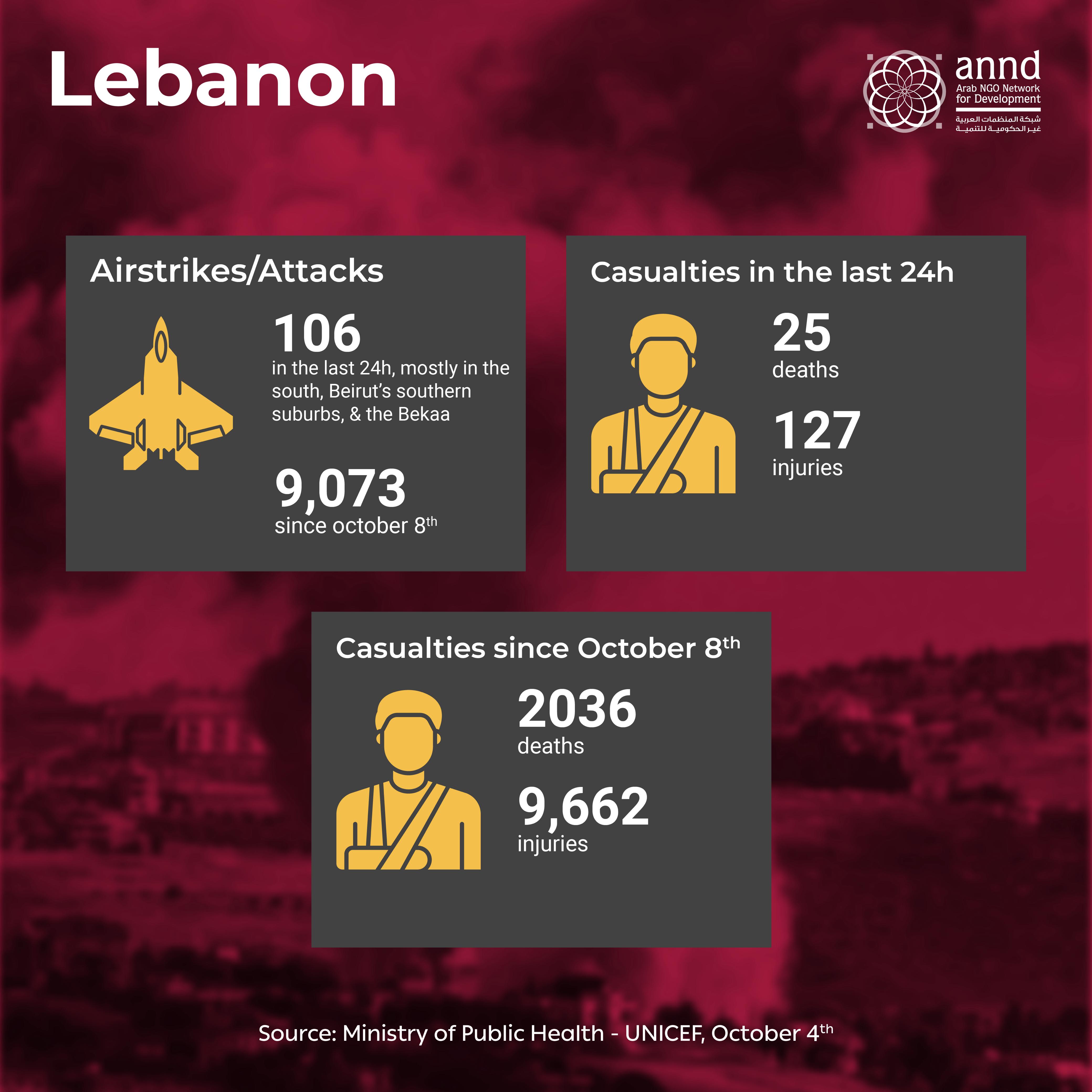
Lebanon's Ministry of Health reported that in the last 24 hours, there were 25 martyrs and 127 wounded, bringing the total death toll since the aggression began to 2,036 martyrs and 9,662 wounded (as of Saturday evening). The Ministry of Health told the “Financial Times” that 50 healthcare workers had been killed by Israeli airstrikes in Lebanon over three days.
The Ministry of Public Health, along with the World Health Organization, reported that as of October 4, 96 primary healthcare centers and clinics had been closed, 77 healthcare workers had been killed, 74 injured, and many health centers, including ambulance dispatch centers, were targeted. One hospital in the south was forced to evacuate its staff and patients.
UNICEF reported that more than 100 children had been killed in Lebanon over 11 days, and 690 more were injured in the past six weeks due to Israeli aggression.
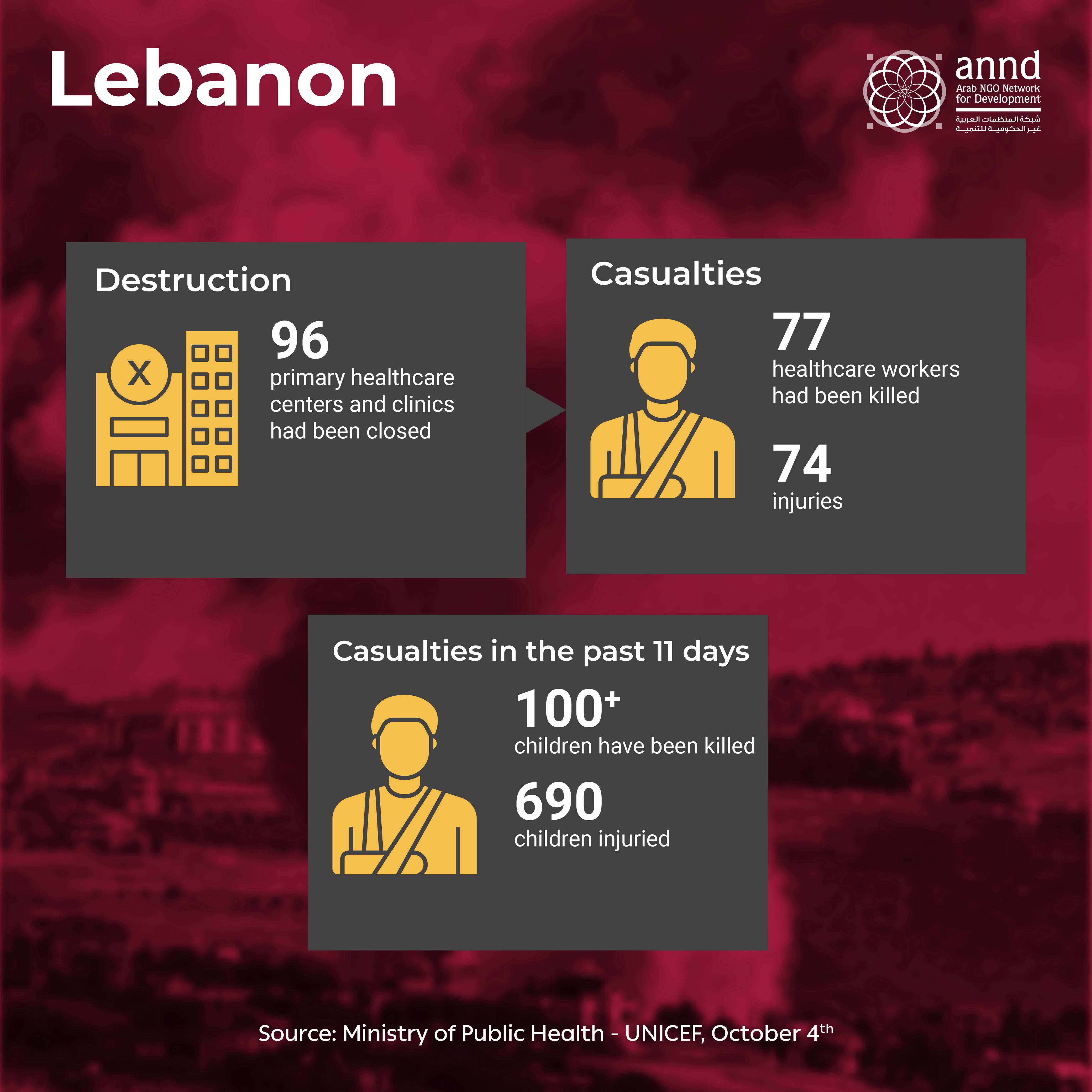
The Israeli army’s Arabic spokesperson, Avichay Adraee, issued a warning today, Saturday, urging residents of 30 southern villages to leave their homes. Meanwhile, Israeli forces continued to block rescue operations in the southern suburbs, where a team from the Lebanese Red Cross and Civil Defense had to retreat after a warning strike.
The Israeli army announced that 38 Israeli soldiers had been injured over the last 24 hours.
Heavy bombardment continued throughout the night on Beirut's southern suburbs and border villages, causing extensive damage and fires that lasted until the early hours of Sunday. Thirty airstrikes hit the southern suburbs in one night, using new types of munitions. Beirut residents felt the ground shake as a result of the strikes.
The Pentagon announced that the Israeli army would remain in Lebanon for some time, and the U.S. State Department stated that President Biden’s administration views it as “appropriate for Israel to continue its ground and air attacks on Hezbollah for now”, adding that it is impossible to set a timeline for the goal of destroying Hezbollah’s infrastructure in southern Lebanon "to allow its settlers to return to the north."
Political developments
A statement from the media office of Lebanese Prime Minister Najib Mikati denied any tension during his meeting with the Iranian Foreign Minister, confirming that the meeting followed diplomatic norms.
The Lebanese government stressed the immediate need for a ceasefire, the implementation of UN Security Council Resolution 1701, and the deployment of the Lebanese army south of the Litani River, with the support of international peacekeeping forces, to allow northern settlers to return home and elect a consensual president for the republic. This stands in contrast to the proposal the Iranian Foreign Minister tried to push during his visit to Beirut two days ago, which called for not separating the tracks of Gaza and Lebanon and continuing the war until a comprehensive deal is reached. Hezbollah has entrusted these issues to Speaker Nabih Berri to handle appropriately. In an interview with “Al Jazeera”, a member of Hezbollah’s parliamentary bloc, Hussein Hajj Hassan, stated that Hezbollah prioritizes a ceasefire, with the possibility of discussing linking the fronts (in contrast to the Iranian stance).
Humanitarian response: Fears of healthcare system collapse
The Lebanese government’s Disaster Management Unit announced that the number of displaced persons has risen to 1.2 million, including 172,000 registered in shelters.
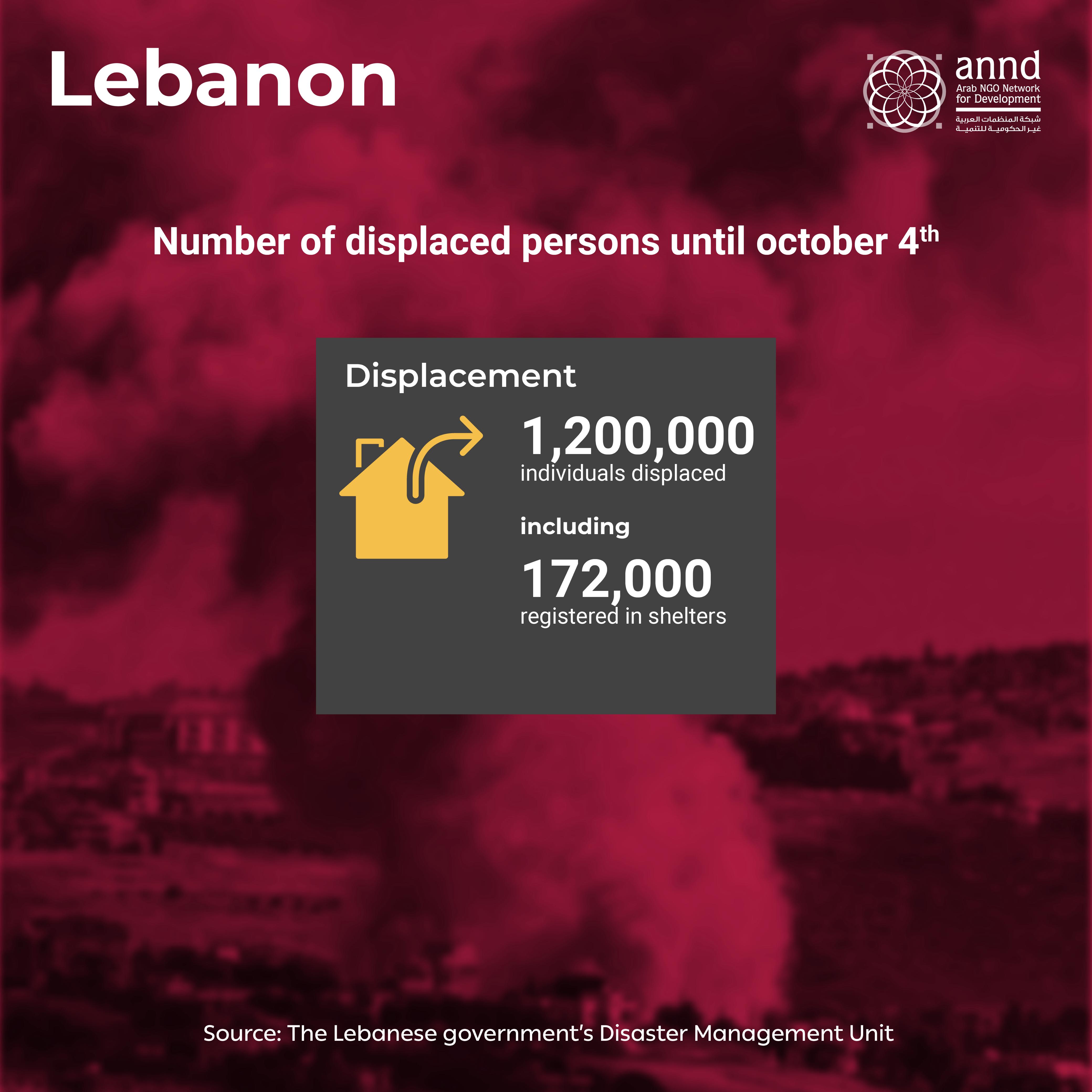
Nasser Yassin, head of the Emergency Committee and Minister of Environment, warned in an interview with “Al Jazeera” that the ongoing war could turn the humanitarian displacement crisis into a full-blown catastrophe, affecting not only Lebanon but also other countries, particularly European ones, which may receive Lebanese and non-Lebanese refugees. He emphasized that the war and destruction must stop immediately.
Lebanon’s Minister of Health expressed fears of the healthcare system collapsing, pointing out that 50 medical and rescue workers had been killed in the last three days. The Lebanese Medical Association made an "urgent" appeal to the World Health Organization and the United Nations to stop Israel’s "massacre" of Lebanon’s medical personnel, warning that the supply chain was at risk, which could worsen the situation.
Lebanon’s Minister of Economy, Amin Salam, stated that stored goods in Lebanon would last four months and that large amounts of aid would arrive next week.
The UN High Commissioner for Refugees condemned Lebanon’s "horrific crisis" after hundreds of thousands fled their homes. He expressed solidarity with those affected and called for more international assistance. He added that more than 200,000 people have fled from Lebanon to Syria since Israel began its air campaign against Lebanon, including both Lebanese and Syrian citizens, before Israel bombed the border crossing between the two countries.
International Positions
A French-Israeli dispute emerged over the war in Lebanon, with French President Emmanuel Macron calling for an end to arms deliveries to Israel, which are being used in the ongoing war on Gaza. He confirmed that France does not supply Israel with this type of weaponry. Israeli Prime Minister Netanyahu responded to Macron’s call to halt arms exports, calling it "shameful," which the Élysée Palace considered an exaggeration. France, which supports Israel's security, calls for an immediate ceasefire and opposes the continuation of the war.
The Francophone Summit issued a special statement on Lebanon, calling for an end to attacks and an immediate and permanent ceasefire.
The Irish Foreign Minister declared that Israel's military operations along the Blue Line (the border between Lebanon and Israel) were an unacceptable violation of UN Security Council Resolution 1701.
UNIFIL spokesman Andrea Tenenti stated that the Israeli army had informed UNIFIL on September 30 of its intention to carry out limited ground incursions into Lebanon and asked them to relocate some of their positions.
The Vatican, through Pope Francis, affirmed that the Church could not remain silent in the face of the human suffering in Lebanon.
UN spokesman Stéphane Dujarric said Friday that the civilian death toll in Lebanon due to Israel’s campaign against Hezbollah was "completely unacceptable." He urged all parties to do everything possible to protect civilians and civilian infrastructure at all times, ensuring that civilians are not harmed.
UAE President Sheikh Mohammed bin Zayed Al Nahyan reaffirmed his country’s support for the Lebanese people during these difficult circumstances, reiterating the UAE's commitment to Lebanon's unity, sovereignty, and territorial integrity.
Qatar’s Prime Minister received a call from the U.S. Secretary of State to discuss efforts to end the war on Gaza and reduce escalation in Lebanon.
Gaza: Continued bombing of shelters
A series of Israeli airstrikes targeted northern Gaza. Residential areas were bombed today, resulting in three massacres against families, with 25 Palestinians killed and 66 injured in the past 24 hours.
The Palestinian Ministry of Health in Gaza announced today, Saturday, that the death toll from Israeli bombings has risen to 41,825 martyrs, with more than 96,910 injured since October 7. The ministry added that on "the 365th day of the ongoing Israeli aggression on the Gaza Strip, a number of martyrs remain trapped under the rubble and in the streets, and rescue teams and civil defense cannot reach them."
